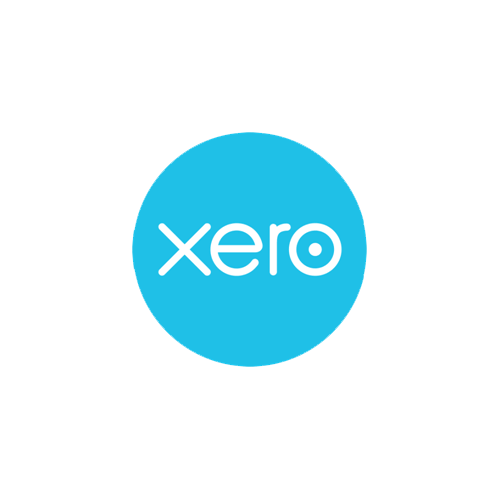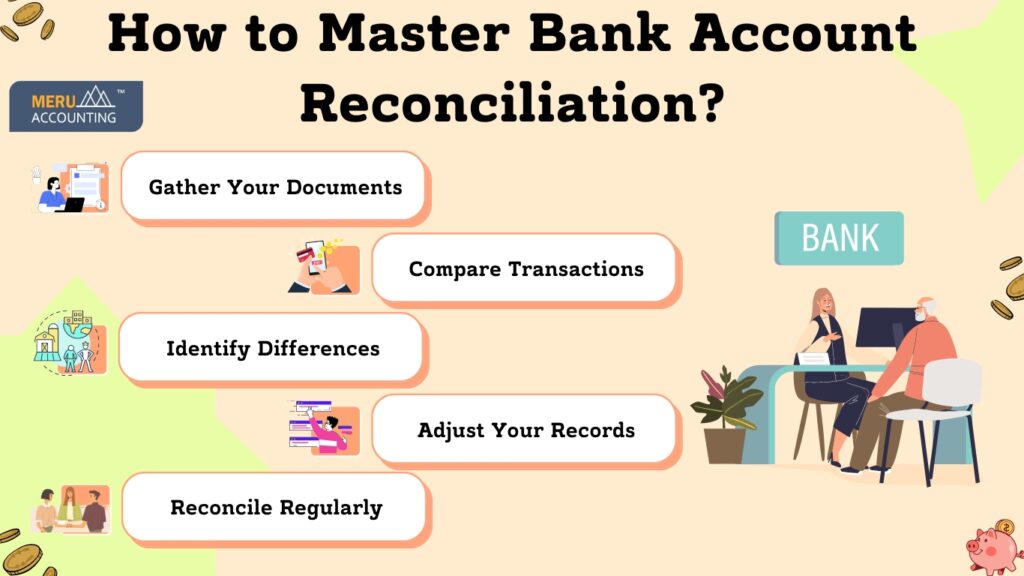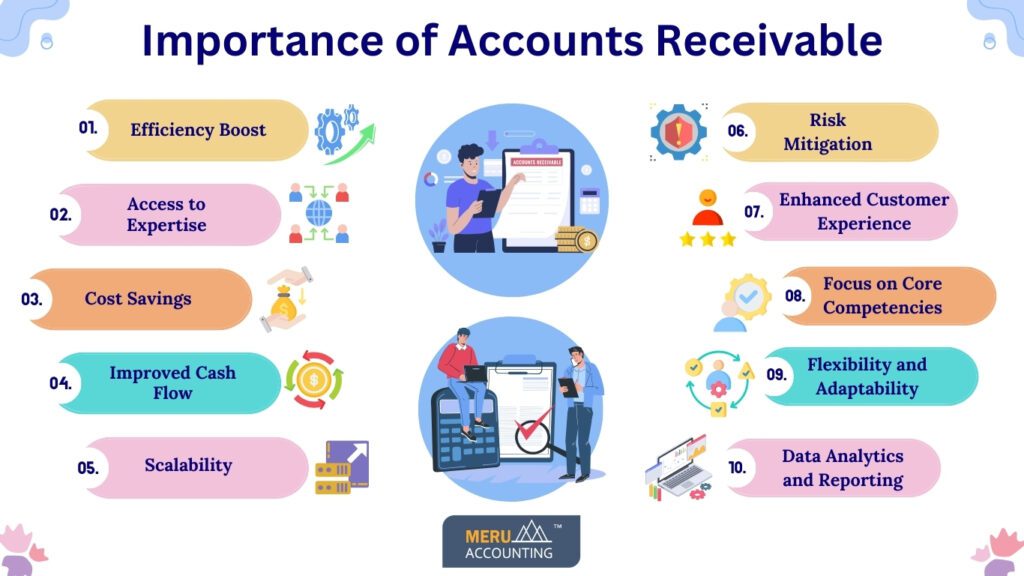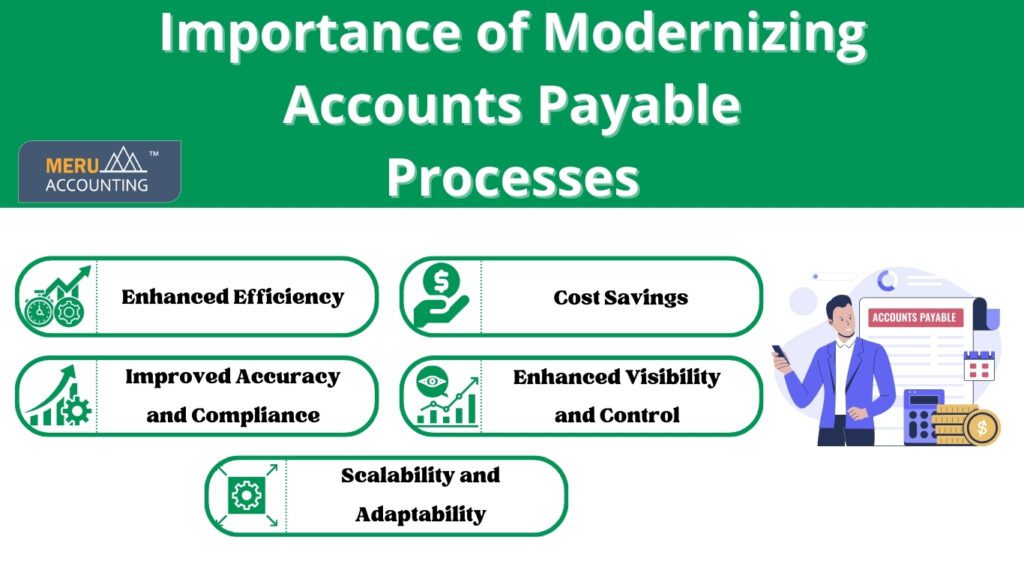
BOOKKEEPING SERVICES
Real Estate Industry
The Real Estate industry, a dynamic economic sector, revolves around the buying, selling, and management of properties. From homes to commercial spaces, it plays an important role in the economy. It’s a complex financial ecosystem with complexities that demand a robust accounting system.
Real Estate bookkeeping requires precise financial tracking within the property sector. It is a specialized branch of accounting that involves recording and managing financial transactions related to properties, investments, and operational activities. Unlike general bookkeeping, the real estate sector comes with its unique set of financial aspects and challenges.

Our world-class real estate accounting and bookkeeping services aim to:
How does Real Estate bookkeeping differ from General Bookkeeping?
Real Estate Bookkeeping involves specialized terms such as "property depreciation," "capitalization rate," and "rentable square footage," which may not be as prevalent in general bookkeeping.
Real Estate bookkeeping considers tax implications unique to the industry, such as property tax assessments, mortgage interest deductions, and depreciation allowances. General bookkeeping may not delve as deeply into these specialized tax considerations.
Real estate transactions often span long periods, and revenue recognition can be more complex due to factors such as lease terms, tenant improvements, and rental escalations. General bookkeeping typically deals with simpler revenue recognition models.
Real Estate transactions often involve escrow accounts to hold funds for property-related expenses. Managing and reconciling escrow accounts is a crucial aspect of real estate bookkeeping that is not as prevalent in general bookkeeping.
Real Estate bookkeeping may include a cost segregation analysis to identify components of a property that can be depreciated over shorter periods, optimizing tax benefits. Such detailed analyses are less common in general bookkeeping practices.
Real estate assets, including properties, can appreciate or depreciate over time. Determining the accurate valuation requires understanding market trends, property improvements, and the impact of economic factors, making real estate bookkeeping more complex than general bookkeeping.
Real Estate bookkeeping may involve collaboration with property managers for tasks like maintenance cost tracking, tenant invoicing, and common area expenses. General bookkeeping, on the other hand, might not require such close coordination with operational aspects of specific assets.
Real Estate bookkeeping complies with specific regulations governing the industry, such as real estate licensing laws and disclosure requirements. General bookkeeping may follow a broader set of regulatory standards applicable to various industries.
Real Estate bookkeeping adheres to specific lease accounting standards, such as those outlined in the International Financial Reporting Standards (IFRS 16) or the Financial Accounting Standards Board (FASB) ASC 842. These standards govern how leases are recognized and disclosed in financial statements.
Real Estate bookkeeping involves precise tracking of mortgage payments, interest rates, and loan amortization schedules. This level of detail is often not as prominent in general bookkeeping where financing may not be as intricate.
Unique Financial Aspects in the Real Estate Industry
A. Property Valuation and Depreciation: One of the fundamental differences in real estate bookkeeping is the inclusion of property valuation and depreciation. Unlike other industries, real estate assets are subject to appreciation or depreciation over time. Bookkeepers must accurately capture these changes to reflect the true value of the property on the balance sheet. Understanding different valuation methods and depreciation schedules is crucial for precise financial reporting.
B. Rental Income and Expense Tracking: Real Estate bookkeeping involves precise tracking of rental income and related expenses. This includes rent payments, property maintenance costs, property management fees, and other operational expenses. The dynamic nature of rental income, which can be subject to fluctuations and lease agreements, requires bookkeepers to adopt agile and adaptable recording practices.
C. Loan and Mortgage Management: In the real estate sector, financing plays a pivotal role. Bookkeepers need to manage loan and mortgage transactions, including interest payments, principal repayments, and other financial aspects associated with property financing. Navigating the intricacies of loan terms, interest rates, and amortization schedules is essential for accurate financial reporting and compliance.
Unique Challenges in Real Estate Bookkeeping
A. Complex Transaction Structures: Real estate transactions often involve intricate structures such as partnerships, joint ventures, and syndications. Bookkeepers must be adept at handling these complex structures, ensuring that financial records accurately reflect the interests and contributions of various stakeholders. Failure to do so can lead to discrepancies and legal complications.
B. Compliance with Real Estate Regulations: The real estate industry is subject to a myriad of regulations and compliance requirements. From tax regulations to local zoning laws, bookkeepers must stay abreast of the ever-changing legal landscape. Ensuring compliance is not only crucial for financial reporting accuracy but also for avoiding legal repercussions that could arise from oversights in adherence to regulations.
C. Varied Revenue Recognition Methods: Unlike some industries with standardized revenue recognition methods, real estate allows for diverse approaches. Bookkeepers must carefully choose the most appropriate method based on the nature of the real estate transactions. This might involve recognizing revenue upon completion of a project, over the life of a lease, or through other methods tailored to the specific aspects of the real estate venture.
Steps on Real Estate Accounting
Transaction Recording for Real Estate
- Identifying Transaction Type: Differentiating between acquisitions, sales, exchanges, or improvements.
- Documenting Transaction Details: Recording pertinent details like property descriptions, purchase prices, closing costs, and financing terms.
- Expense Categorization: Properly classifying expenses such as legal fees, appraisals, and title insurance.
- Updating Property Records: Adjusting property values, depreciation schedules, and insurance coverage to reflect changes.
- Maintaining an Audit Trail: Keeping all transaction documents like invoices, receipts, and contracts for an audit trail.
Property Expense Accounting
- Establishing Expense Categories: Creating distinct expense accounts for various property-related costs.
- Recording Monthly Expenses: Regularly documenting expenses and assigning them to relevant accounts.
- Expense Reports: Generating routine expense reports to monitor costs and identify areas for optimization.
- Expense Reconciliation: Periodically cross-checking expense accounts with bank statements and invoices for accuracy.
Rental and Lease Management Accounting
- Rent Receivables: Recording rental income as it becomes due from tenants.
- Late Payment Monitoring: Tracking and managing late payments through proper collection procedures.
- Lease Agreement Maintenance: Accurately documenting lease terms, start and end dates, and renewal options.
- Expense Allocation: Appropriately assigning lease-related expenses to relevant accounting periods.
Escrow Accounting
- Establishing Escrow Accounts: Setting up accounts for transactions like tenant security deposits or sale proceeds held until closing.
- Tracking Deposits: Accurately recording deposits for transparency and accountability.
- Disbursement Management:Releasing funds from escrow accounts only when conditions are fulfilled.
- Reconciliation: Regularly verifying escrow accounts against bank statements for accuracy.
Property Valuation and Depreciation
- Determining Property Value: Employing appropriate valuation methods to ascertain fair market value.
- Depreciation Calculation: Utilizing suitable methods to spread property improvement costs over their useful lives.
- Record Adjustment: Regularly updating records to reflect changes in property values and depreciation schedules.
- Tax Compliance: Ensuring depreciation aligns with tax regulations to minimize tax liabilities.
Tax Planning for Real Estate
- Understanding Implications: Consult tax professionals for a comprehensive understanding of tax implications related to transactions and investments.
- Identifying Taxable Events: Recognizing taxable events like property sales, rental income, and depreciation deductions.
- Implementing Strategies: Using tax-efficient strategies such as property and capital gains deductions to reduce tax liabilities.
- Staying Informed: Keeping abreast of tax law changes for compliance and optimized tax planning.
Financial Reporting
- Preparing Statements: Generating balance sheets, income statements, and cash flow statements to summarize financial positions.
- Analyzing Performance: Assessing trends and profitability from financial statements for informed decision-making.
- Disclosure: Share pertinent financial information with stakeholders, investors, creditors, and regulators.
Compliances for Real Estate
- Licensing and Permits: Verify compliance with local licensing requirements for real estate businesses or agents.
-
Fair Housing Laws: 1.Adhere strictly to all relevant fair housing laws and regulations.
2. Implement practices that prevent discrimination in housing transactions and interactions. -
Environmental Regulations: 1. Stay up-to-date on environmental regulations affecting real estate.
2. Ensure that all real estate transactions and operations align with and fulfill environmental laws and standards.
Software we use for bookkeeping for Real Estate
1. QuickBooks Online for Real Estate: QuickBooks Online is a revolutionary tool for real estate businesses, offering a tailored and comprehensive accounting solution. Designed to meet the specific needs of the real estate industry, this software empowers professionals to streamline financial processes, ensure accuracy, and enhance strategic financial planning.
2. Buildium: Buildium emerges as a comprehensive property management software solution that seamlessly integrates accounting and financial reporting features. Aimed at simplifying the complexities of property management, Buildium offers a robust platform for landlords, property managers, and real estate professionals. Through its user-friendly interface and a suite of specialized tools, Buildium facilitates efficient property management while ensuring accurate financial tracking and reporting.
3. AppFolio: AppFolio is an exceptional cloud-based property management software that seamlessly integrates essential functionalities such as accounting, reporting, and rent collection. Tailored for property managers, landlords, and real estate professionals, AppFolio offers a comprehensive and user-friendly platform designed to streamline operations and enhance overall efficiency in the management of diverse property portfolios.
4. Yardi Voyager: Yardi Voyager is a comprehensive and integrated property management and accounting platform designed to meet the unique needs of real estate professionals. Developed by Yardi Systems, a leading provider of real estate software solutions, Voyager is renowned for its ability to streamline operations, enhance efficiency, and provide a centralized hub for managing diverse aspects of property management and financial processes.
5. Rent Manager: Rent Manager is a robust property management software solution designed to streamline and simplify the complex tasks associated with property management. Offering a comprehensive suite of features, Rent Manager is recognized for its efficiency in handling various aspects, including accounting, budgeting, and financial reporting. Developed to meet the evolving needs of property managers and landlords, Rent Manager is a versatile tool that contributes to the seamless management of residential and commercial properties.
6. MRI Software: MRI Software stands as a leading provider of real estate software solutions, offering a range of tools to address the complexities of property management and accounting. With a commitment to innovation and efficiency, MRI Software has become a trusted partner for real estate professionals seeking comprehensive and integrated solutions to streamline their operations.
7. Sage Intacct: Sage Intacct stands as a prominent cloud-based financial management software solution tailored to meet the needs of real estate businesses. Renowned for its flexibility, scalability, and robust financial features, Sage Intacct empowers real estate professionals with a comprehensive toolset for efficient financial management in the ever-evolving real estate landscape.
8. RealPage: RealPage stands as a comprehensive property management software solution, catering to the diverse needs of real estate professionals. Renowned for its integration of property management with robust accounting, budgeting, and reporting capabilities, RealPage provides a centralized platform to streamline operations, enhance financial oversight, and optimize the management of properties.
9. Propertyware: Propertyware is a comprehensive property management software designed to provide end-to-end solutions for real estate professionals. Offering a suite of features that cover property management, accounting, and financial reporting, Propertyware aims to streamline operations, enhance efficiency, and empower property managers with the tools needed for effective portfolio management.
11. Rentec Direct: Rentec Direct is a revolutionary property management software that transcends basic property and tenant organization. Its robust accounting features make it indispensable for landlords and property managers, eliminating the need for separate accounting tools.
12. ResMan: ResMan is an advanced property management software designed for landlords, property managers, and real estate professionals. With its cutting-edge features, ResMan seamlessly integrates comprehensive accounting, budgeting, and reporting capabilities into one centralized platform. This eliminates the necessity for multiple systems or manual processes, streamlining financial operations for efficient property management.
13. Entrata: Entrata is a comprehensive property management platform tailored for landlords and real estate professionals. Boasting robust features, it automates lease management, maintenance scheduling, and tenant communication. The platform also excels in accounting, automating tasks like accounts payable/receivable and budgeting, and providing real-time insights into property performance and profitability. With seamless integration capabilities, Entrata simplifies financial management, making it an invaluable tool for efficient property operations.
14. Xero: Xero is a well-known cloud-based accounting software designed for small to medium-sized real estate businesses. With its user-friendly interface, it simplifies financial management tasks, offering accessibility and flexibility for users to access financial data anytime, anywhere. Tailored for real estate needs, Xero tracks income, manages cash flow, and generates comprehensive reports. Its seamless integration with other business apps enhances efficiency, automates bank feeds, and provides real-time reporting, empowering real estate businesses to make informed decisions, save time, and focus on growth.
15. Property Matrix: Property Matrix, an innovative property management software, provides a comprehensive suite of features for accounting, reporting, and lease management. Real estate professionals enjoy streamlined operations, improved financial management, and enriched tenant interactions. The software’s accounting module simplifies tasks like rent collection, reducing manual effort and errors. Property Matrix excels in lease management, simplifying processes with a user-friendly interface and customizable workflows.
16. RentPost: RentPost is a dependable property management software designed for landlords and property managers, offering essential functionalities for streamlined accounting and online rent collection. This feature-rich platform simplifies financial management, enhances convenience for both property managers and tenants, and eliminates manual rent collection hassles.
17. Total Management: Total Management is an all-encompassing property management software that seamlessly integrates accounting capabilities. This comprehensive platform streamlines operations, enhances efficiency, and improves financial management for property managers. The software centralizes accounting processes, offering tools for tracking income, managing expenses, generating invoices, and providing robust financial reporting.
18. Quicken Rental Property Manager: Quicken Rental Property Manager is specialized personal finance software tailored for effective rental property management. It empowers property owners with tools to track income and expenses, manage tenant information, and streamline property tasks, ensuring organized financial management.
19. Buildout: Buildout is a specialized marketing and deal management software designed exclusively for the commercial real estate industry. It empowers professionals by streamlining marketing processes, simplifying listing management, and facilitating collaborative deal closure.
20. Stessa: Stessa is a robust platform tailored for real estate investors, offering comprehensive financial tracking and reporting tools. Its user-friendly interface and automation capabilities simplify income, expense, and property performance management. Investors benefit from informed decision-making and portfolio optimization through Stessa’s centralized dashboard and detailed reporting insights.
Managing rental properties involves a multitude of tasks, including rent collection, maintenance tracking, tenant communication, and financial reporting. To streamline these processes and maintain accurate records, landlords and property managers often rely on specialized software solutions.
Numerous software options are available, each with its own set of features, pricing, and target user base. The most suitable choice depends on the size and complexity of the rental portfolio, the specific needs of the landlord or property manager, and their budget.
Factors to Consider When Choosing Software
When selecting software for recording rental transactions, consider the following factors:
1. Number of Properties: The software should be able to handle the volume of rental units managed. Some solutions are tailored for smaller portfolios, while others cater to large-scale operations.
2. Essential Features: Identify the core features required, such as rent collection, tenant management, maintenance tracking, reporting, and online rent payments. Ensure the chosen software provides these functionalities.
3. Ease of Use: The software’s interface should be user-friendly and intuitive, especially for those without extensive technical knowledge.
4. Mobile Accessibility: If mobile access is important, choose software with a responsive mobile app that allows on-the-go management of rental properties.
5. Integrations: Consider compatibility with existing accounting or other business software to streamline data transfer and avoid manual data entry.
6. Customer Support: Assess the level of customer support offered by the software provider to ensure prompt assistance in case of technical issues or questions.
7. Pricing Structure: Evaluate the pricing plans and consider the value proposition of each software option. Choose a solution that aligns with your budget and provides the features you need.
Software Solutions Used by Meru Accounting for Rental Transactions
QuickBooks
1
QuickBooks stands out as a versatile and widely used accounting software that caters to the diverse needs of businesses, including rental transactions. Meru Accounting utilizes QuickBooks for its user-friendly interface and robust functionality.
One of the key features that makes QuickBooks a favorite is its ability to handle multiple aspects of rental transactions. From invoicing and expense tracking to generating financial reports, QuickBooks streamlines the entire process. Automated features reduce the risk of errors, ensuring that businesses can maintain accurate and up-to-date records.
Moreover, QuickBooks integrates seamlessly with various bank accounts and financial institutions, allowing Meru Accounting to reconcile transactions effortlessly. This synchronization enhances efficiency and reduces the likelihood of discrepancies in rental transactions.
Xero
2
Meru Accounting leverages the power of cloud-based accounting with Xero, a software solution that offers real-time collaboration and accessibility. Xero’s cloud-based nature allows us to access rental transaction data from anywhere, promoting flexibility and remote collaboration.
Xero excels in automating repetitive tasks, such as invoicing and bank reconciliations. Meru Accounting appreciates the time-saving capabilities of Xero, as it allows us to focus on value-added activities rather than routine data entry. This efficiency is particularly crucial in the context of rental transactions, where numerous transactions need to be recorded and tracked.
The software’s dashboard provides a comprehensive overview of financial data. This helps in getting a holistic view of rental transactions. Additionally, Xero’s integration capabilities with third-party apps further enhance its functionality, which allows us to tailor the software to meet specific client needs.
FreshBooks
3
FreshBooks has gained popularity for its user-friendly interface and straightforward approach to accounting. Meru Accounting appreciates the simplicity of FreshBooks, especially when dealing with rental transactions for clients who may not have an extensive background in finance.
The software offers features tailored for small businesses, making it an ideal choice for managing rental transactions for individual property owners or small-scale landlords. Meru Accounting finds FreshBooks particularly useful for creating professional-looking invoices, tracking expenses, and generating reports related to rental income and expenses.
Automation is a key strength of FreshBooks, allowing recurring invoices and automating late payment reminders. This not only saves time but also ensures that rental transactions are conducted seamlessly, contributing to positive client relationships.
Industry Trends and Insights for Real Estate
USA
Industry Trends in the US Real Estate
1. Rising Home Prices: Currently, the median home price in the US stands at $435,700, marking a 13.2% surge from the previous year.
2. Limited Housing Inventory: The US grapples with a housing shortage, evident in an 18.2% decrease in available homes for sale compared to a year ago.
3. Increased Rental Housing Demand: The rental market experiences heightened activity, with the median rent for a two-bedroom apartment reaching $1,975 as of July 2023.
4. Growth of the Build-to-Rent Sector: The US witnesses rapid expansion in the build-to-rent sector, driven by investors eyeing long-term income streams from rental properties.
5. Technology Adoption: Technology assumes an increasingly pivotal role in the US real estate market, encompassing data analytics shaping investment decisions and the development of virtual and augmented reality tools for property viewing.
Industry Insights in the US Real Estate
The US real estate market is anticipated to register an average annual growth rate of 2.3% over the next five years.
1. Expectations indicate a steady 10% average annual growth rate in the build-to-rent sector over the next five years.
2. Projections foresee continuous growth in the demand for rental housing in the forthcoming years.
3. Anticipated is the escalating role of technology in shaping the US real estate market’s landscape in the years ahead.
Facts and Figures on the US Real Estate Market
1. The US real estate market boasts a value of approximately $45 trillion.
2. The median home price in the US is reported at $435,700.
3. Over the past year, home prices have surged by an average of 13.2%.
4. A noticeable decline of 18.2% is observed in available homes for sale compared to the previous year.
5. The median rent for a two-bedroom apartment stands at $1,975.
UK
Trends in the UK Real Estate Industry
1. Surging Demand for Affordable Housing: A shortage of affordable housing in the UK is driving prices upward, a trend expected to persist in the short term as housing demand continues to outstrip supply.
2. Heightened Focus on Sustainability: A growing demand exists for sustainable real estate, with investors and occupants increasingly prioritizing properties boasting high energy efficiency ratings and green credentials.
3. Transition to Flexible Working: The COVID-19 pandemic has accelerated the shift to flexible working, leading to reduced demand for traditional office spaces. This scenario opens opportunities for repurposing office buildings into residential or mixed-use developments.
4. Expansion of the Build-to-Rent Sector: The build-to-rent sector is experiencing rapid growth in the UK as investors recognize the potential for long-term income streams from rental properties.
5. Rise of Technology: Technology is assuming an increasingly pivotal role in the real estate market, ranging from data analytics informing investment decisions to the development of virtual and augmented reality tools for property viewing.
Industry Insights in the UK Real Estate
1. The UK real estate market is anticipated to grow at an average rate of 2.5% annually over the next five years.
2. The build-to-rent sector is poised for an average annual growth rate of 15% over the next five years.
3. The demand for sustainable real estate is expected to continue its upward trajectory in the coming years.
4. Technology is set to play an increasingly crucial role in shaping the real estate market’s future dynamics.
Facts and Figures on the UK Real Estate Market
1. The UK real estate market boasts a value of approximately £7.2 trillion.
2. The average house price in the UK stands at £286,500.
3. Over the past 12 months, house prices have seen an average increase of 7.8%.
4. The house price to rent ratio in the UK is 131.7.
5. A shortage of 1.5 million homes poses a challenge for the UK
Australia
Trends in the Australia Real Estate Industry
1. Affordability Challenges on the Rise: The Australian housing market has witnessed a surge in median house prices, reaching unprecedented levels in major cities. This surge has presented a significant hurdle for aspiring homeowners, especially first-time buyers.
2. Shift towards Regional Living: The COVID-19 pandemic has accelerated a notable trend – an increasing number of individuals are opting for a regional lifestyle due to a desire for change and greater affordability. Consequently, property prices in regional areas are experiencing upward pressure.
3. Growing Demand for Rental Properties: The rental market is undergoing tightening conditions, with low vacancy rates and rising rents in various regions. Contributing factors include heightened demand from individuals unable to purchase homes and a shortage in rental supply.
4. Rising Importance of Technology: Technology is assuming a pivotal role in the real estate sector. The industry is witnessing the development of new platforms and tools designed to simplify property transactions for buyers, sellers, and renters.
Industry Insights in the Australia Real Estate
1. Persisting Affordability Challenges: Although house price growth is anticipated to moderate in the short term, affordability challenges are expected to persist. Factors contributing to this scenario include rising interest rates and ongoing supply constraints.
2. Continued Growth in Regional Living: The trend towards regional living is projected to endure as individuals seek more affordable and lifestyle-oriented housing options.
3. Tight Rental Market Expected to Continue: Strong rental demand is foreseen, exerting upward pressure on rents in various regions.
4. Technology’s Ongoing Disruption: Continued advancements in technologies such as virtual reality and artificial intelligence are poised to significantly impact and disrupt the real estate industry in the coming years.
Facts and Figures on the Australian Real Estate Market
1. Median House Price: As of September 2023, the median house price stands at $1,015,283.
2. Annual House Price Growth: The annual growth rate in house prices for September 2023 is at -0.8%.
3. Rental Vacancy Rate: The rental vacancy rate is currently at 1.0% as of September 2023.
4. Median Weekly Rent: As of September 2023, the median weekly rent is $525.
5. Dwelling Commencements: The number of dwelling commencements recorded in the year leading to September 2023 is 257,730.
Canada
Industry Trends in the Canadian Real Estate
1. Strong Housing Demand: The Canadian housing market thrives on factors like low interest rates, substantial population growth, and a scarcity of affordable housing. This demand exerts upward pressure on prices, notably in major cities like Toronto and Vancouver.
2. Rising Home Prices: The national average home price in Canada surged to a record high of $748,439 in January 2022, marking a 20% increase from the preceding year.
3. Affordability Concerns: Despite rising incomes, many Canadians grapple with housing affordability. The median household income in Canada stands at $89,700, while the average home price exceeds seven times that amount.
4. Shift to Urban Living: This surge in demand translates to increased urban housing needs, particularly in the form of condos and apartments.
5. Increasing Diversity of Buyers: Demographic shifts are apparent in the Canadian real estate market, with millennials and first-time homebuyers comprising a larger market share.
Industry Insights in the Canadian Real Estate
1. The Canadian real estate market is anticipated to register an average annual growth rate of 3.2% over the next five years.
2. Expectations suggest sustained robust demand for housing, notably in major urban centers.
3. While affordability concerns persist, indications point to a potential moderation in the market.
4. The ongoing trend towards urban living is expected to continue.
5. The market witnesses an expanding diversity among buyers, with millennials and first-time buyers gaining increased representation.
Facts and Figures on the Canadian Real Estate Market
1. The Canadian real estate market boasts an approximate worth of $59.3 billion.
2. The average home price in Canada is reported at $748,439.
3. Over the past year, home prices surged by an average of 20%.
4. The house price-to-rent ratio in Canada is 131.7.
5. Canada faces a shortage of 1.5 million homes.
Services offered to Clients
Our services are mainly focused on bookkeeping, accounting, and tax preparation and processing for real estate companies, brokers, investors, agents, etc. We have vast industry experience and can handle any kind of bookkeeping request whether basic or complex. Some of the key services we offer are:
From bill preparation to recording and accounting for revenue, recording receivable transactions, preparing periodic statements and accounts receivable reports, managing deductions and maintaining subsidiary ledgers, we take care of your entire accounts receivable process.
We help you transform your real estate customer's payment activities by automating the entire process. Our key accounts payable services include data collection, data processing, suspecting duplicate analysis, supplier management, generating accounts payable reports, tax reporting, etc.
We can help you with the diverse bank and credit card reconciliation requests including reconciliation of your bank statements with business records, cashbook and passbook reconciliation, credit cards reconciliation with bank records, invoices reconciliation with journal entries and ledgers, etc.
We assist in creating and maintaining accurate financial reports that can help you in determining the accurate financial performance of your business. Our key services include preparation of income statement and balance sheet, preparation of cash flow statement, budget management, general ledger maintenance, payroll management, inventory management, risk assessment, etc.
We help you with tax planning strategies which further lead to reducing your cash outflows and taxes. Besides tax minimization strategy, we also assist with tax return preparation, tax filing, calming refund, etc.
Who we serve
We offer a wide range of services to cater to every company’s accounting, finance and bookkeeping needs.
Software Expertise
We leverage some of the latest and updated accounting and bookkeeping tools and technologies to offer the best possible services within a quick turnaround time. Some of the bookkeeping software that we use are QuickBooks, Net Suite, Quicken, CSA, Peachtree, MYOB, Sage, Creative Solutions’ Ultra-Tax and Intuit’s Pro Series. We specialize in all of these modern cloud accounting tools.




Certificates and awards
We strive to strike excellence in everything we do at Meru Accounting! We try to do our utmost every day to serve our clients better. We are a certified Xero Silver Partner and QuickBooks advisor.


Recent Blogs
Check out our latest blogs and articles and see what our experts have to say about the real estate industry.
Say Goodbye to Financial Headaches: Mastering Bank Account Reconciliation Made Easy!
Unlocking Business Success: The Power of Outsourcing Accounts Receivable
Why Modern Businesses Need Cutting-Edge Accounts Payable Services
What Are You Waiting For?
Don’t hesitate to get in touch with us for a modern and effortless bookkeeping experience awaits you!
+91 98765 43210




